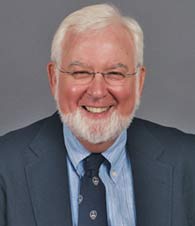|
Executive Interviews: Interview with Allan R Cohen on Staying on Top, Always
October 2009
-
By Dr. Nagendra V Chowdary
 Allan R Cohen
Allan R Cohen Edward A Madden Distinguished Professor of Global Leadership at Babson College. 
Professor, you helped found the
Indian Institute of Management,
Ahmedabad. Can you take us
through those formative years in
terms of aspirations and goals for a
business school? When you look
back upon creation, what is the sense
of achievement like?
The creation of IIM, Ahmedabad was
an extremely entrepreneurial venture.
A group of Indian businessmen,
spearheaded by Vikram Sarabhai,
was dissatisfied with the business
education then available. They
thought it was not practical, not
conceptually sophisticated, too rote,
and not very oriented towards
producing effective managers. They
had decided that the Indian
university system was too rigid and
bureaucratic to make the appropriate
changes in curriculum or practices so
they agreed to set up an institution
outside of the university system.
They managed to build alliances with
the Ford Foundation, Harvard
Business School and the Gujarat
government. Six Indian professors
with American PhDs were hired, and
three Harvard doctoral students were
hired as research Associates to create
Indian teaching materials. A faculty
member was also hired to lead the
Harvard project. They were committed to creating an
institution every bit as relevant to
developing business leaders as
Harvard was in the US. At the same
time, IIM Calcutta was founded in
partnership with MIT, following their
more quantitative model of
management education. The
founding of these two schools was a
bold move, since no one was certain
whether the right kind of faculty
could be found, right kind of
curriculummaterials developed, right
kind of pedagogical practices
adopted, the right kind of student
body could be attracted, the right
kinds of jobs would be offered to the
graduates, and so on. And could the attempt to bypass the university
system actually work? Almost 50 years later, I am thrilled at
how well the entrepreneurial
experiment worked. The schools are
the most selective in the world, their
graduates go on to do great things,
and they created a model for
professional Indian higher education. -
If the word ‘Leadership’ is googled,
125,000,000 results pop out. Even
after writing numerous books,
articles, research and working
papers, movies, etc., why does the
leadership topic continue to engage
the researchers’ imagination and
creative pursuits?
Leadership is an endlessly
fascinating subject. You are correct
that billions of words have been
written about it, and continue to be.
My own beliefs about why so much
is written but so little of it is useful
has to do with the nature of the
phenomenon and the inherent
limitations of language. The minute
we talk about leadership, the idea
becomes abstracted fromall the things
that people in leadership roles
actually do. Leadership is not
executed on Tuesday morning from
10-11 AM; it is happening as leaders
make decisions about strategy,
marketing, government relations,
accounting choices, and all the other
things that have to do with the
organization’s purpose. Of course,
the way leaders treat people is a
critical part of creating organizational
effectiveness, but it is going on all the
time, even when the leader is
thinking about something else.
Indeed, all leaders are “on stage” all
the time, so that anything they do or
say – or do not do or say – is
interpreted and givenmeaning. Their
action or inaction sends messages –
intended or otherwise – to those in
the organization. No one has found a
very good way to talk about all these
things at once, so we keep writing
and theorizing and researching in hope of developing useful ideas.
And of course, we have all
experienced leadership all the time,
from when we were babies following
our parents, throughout our working
lives. I believe it will continue to be
an endlessly fascinating subject.
-
What according to you are the
differences between leaders and
managers or leadership and
management?
The classic difference between
leaders and managers has to do with
setting out the future as compared to
executing specific plans to get there.
Managers are supposed to make the
trains run on time; leaders decide
where we should be going and
whether or not we should even be
using trains to get there. This
distinction has a certain appeal but it
is increasingly artificial. When
organizations are confronted by rapid
changes, new knowledge, and
considerable uncertainty, then
everyone at all levels needs to initiate
some amount of leadership. Blindly
following pre-set plans doesn’t work
very well in contemporary
conditions. And leaders are seldom
the only ones with ideas for how to
do things differently or better.
|
